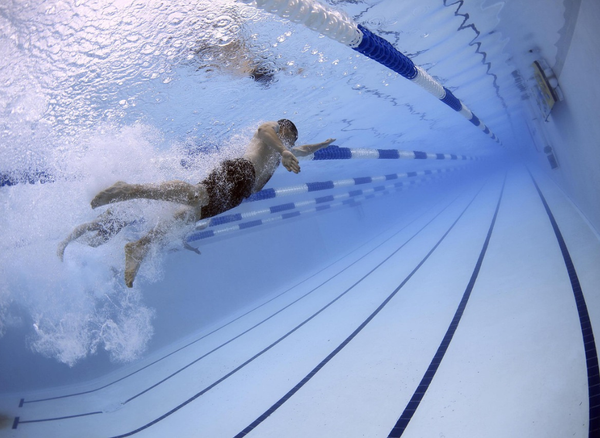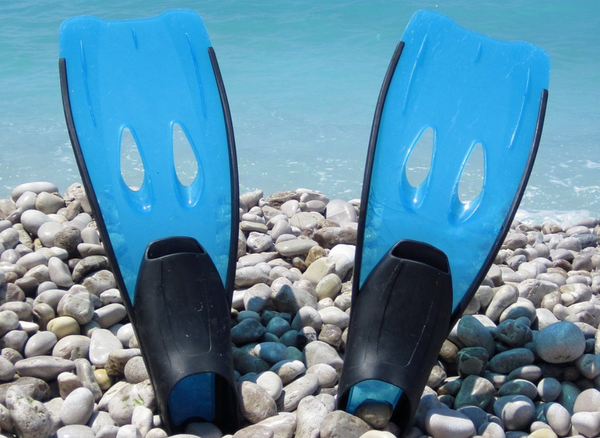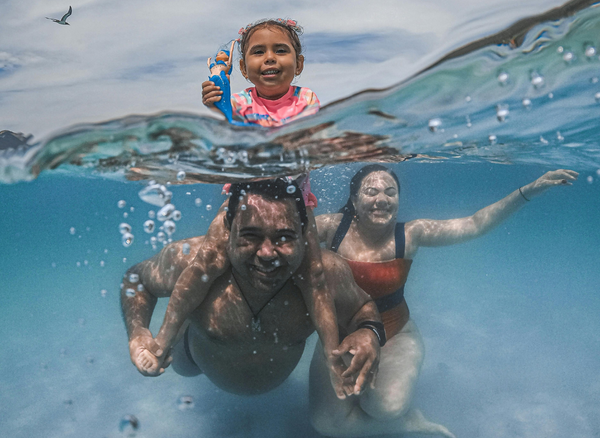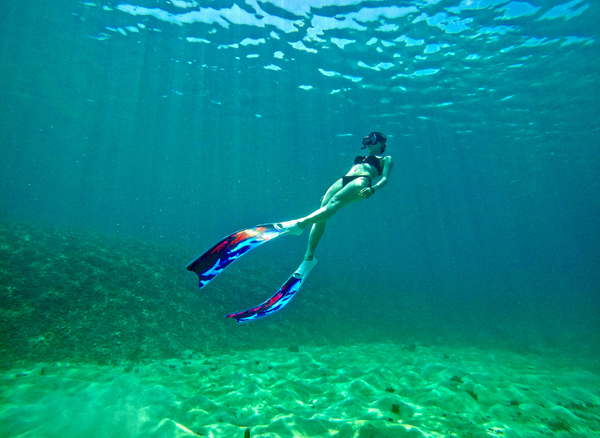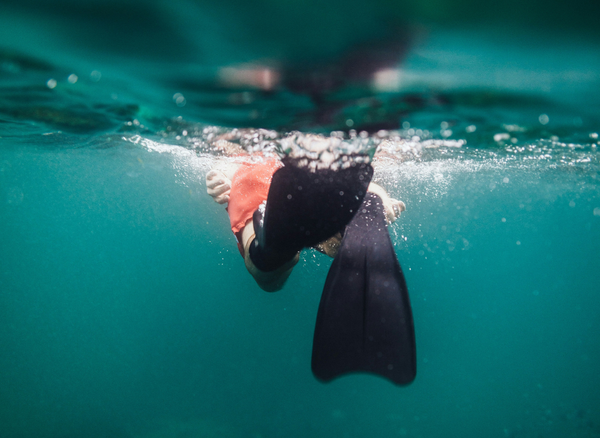Have you ever felt the urge to explore the underwater world like a mermaid?
Well, guess what? You can do that with freediving. It's an exciting way to experience the underwater world. Let's dive into the basics on what is freediving.
It is an ancient practice that has been around for centuries, primarily used for harvesting food and gathering resources. However, in recent years, freediving has become a popular recreational activity.
Why People are Drawn to Freediving
Have you ever wondered why people voluntarily dive deep into the ocean without any scuba gear on? Well, if you're one of those curious minds, then you've come to the right place! Freediving is an increasingly popular sport that challenges the limits of the human body and mind.
While most people associate diving with scuba divers or snorkelers, there's a whole community of people who prefer the thrill of freeing themselves from the encumbrances of heavy breathing apparatus equipment. Let us explore what makes freediving so much fun.
1. Thrill of the Challenge
One of the biggest reasons why people are drawn to freediving is the challenge it poses. Divers push their bodies and minds to the limit with deep dives and longer times underwater. Freediving requires a lot of discipline and practice to master. The challenge of beating their personal records and achieving new depths often keeps divers coming back for more.
2. Connection to Nature
The ocean is a magnificent place and offers a completely different world beneath its surface. In freediving, divers get an intimate experience of the marine world by connecting with the water and the wildlife around them. Diving without the noise of scuba tanks allows divers to appreciate the peaceful and serene environment below the surface. Many divers report feeling a sense of tranquility and peace when they explore the underwater world.
3. Physical and Mental Health Benefits
Freediving is no doubt an extreme sport, but it also offers numerous health benefits. Divers develop better lung capacity, heart ❤️ health, and overall physical fitness. In addition, the sport requires immense mental strength as divers need to overcome their fears and remain calm in a potentially dangerous environment. Practicing freediving can lead to more profound meditation, better sleep, and an overall sense of well-being.
4. A Sense of Community
Freediving is not just a solitary activity, it brings people together. Freediving communities are tight-knit communities in many parts of the world. Diving with others brings a sense of camaraderie and a shared appreciation for the ocean and its inhabitants. Freedivers support and encourage each other through training and events, and that sense of community is a big part of the sport's appeal.
5. A Sense of Adventure
Freediving offers a sense of adventure that's hard to find anywhere else. Exploring new depths and seeing new marine life up close is a unique experience that many people find thrilling. Whether it's diving in exotic locations or simply exploring your local waters, there's always something new to see and explore.
Different Types of Freediving
Freediving is not just about holding your breath and diving into the depths of the ocean. There are different types of freediving that cater to your abilities and preferences. We'll take you on a journey of the types of freediving and what sets them apart.
1. Recreational Freediving: This type of freediving is for those who want to explore the underwater world without any competition pressure. Recreational freediving is all about having fun and experiencing the magic of the ocean. It involves diving to various depths, swimming alongside marine life, and exploring shipwrecks and reefs. To practice recreational free diving, all you'll need is a mask, fins, and snorkel. Plus, it's a great way to get some exercise and de-stress from the hectic world above.
2. Competitive Freediving: If you're someone who loves to push their limits, compete with others, and go for world records, then competitive freediving is a great option. Freediving as a competitive sport involves diving to significant depths and seeing who can hold their breath the longest. There are different types of freediving competitions, including constant weight, free immersion, no fins, static apnea, and dynamic apnea to name a few. Apart from a mask and fins, you'll need a wetsuit and weights to practice competitive freediving.
3. Spearfishing: If you're an avid fisher and want to take your hobby to the next level, spearfishing is a great option. It is a traditional method of fishing that involves using a spear to catch fish underwater. Spearfishing is a great mix of freediving and hunting – it requires patience, skill, and quick reflexes. However, it is essential to know your local laws regarding spearfishing and practice sustainable fishing to minimize ecological damage.
4. Underwater Photography and Videography: Do you love capturing moments and memories? If yes, then underwater photography and videography might be your calling. Freediving is the best way to capture the beauty of the underwater world without any bubbles or noises. However, it takes a lot of practice and patience to capture the perfect shot. Apart from a camera, you'll need a range of accessories like strobes, lights, and lenses to click stunning pictures and videos.
5. Technical Freediving: If you want to take freediving to the next level and explore the depths of the ocean, technical freediving might interest you. Technical freediving involves diving to significant depths and following a specific set of rules and procedures. It involves the use of rebreathers, diving computers, and other technical diving equipment. Technical freediving demands a lot of training, discipline, and knowledge.
Benefits of Freediving
Freediving offers a range of benefits beyond just exploring the underwater world. It can improve your lung capacity, reduce stress levels, and increase overall fitness. Additionally, it provides a unique sense of freedom and connection with the ocean that can't be found anywhere else.
Always dive with a buddy and never dive beyond your capabilities. With the right training and mindset, freediving can be a rewarding and fulfilling adventure.
Are you ready to freedive?
To start your freediving journey, proper technique and breath control are key components of successful freediving. Mastering the art of conserving oxygen and managing pressure changes while submerging and resurfacing in the water is a must. There are training techniques such as static apnea and dynamic apnea that aim to enhance your breath-holding abilities underwater. It's recommended to learn from experienced freediving instructors, who can equip you with the essential skills and knowledge for a safe and enjoyable experience.
Now that you had a quick freediving education, are you ready to give it a try? Grab your wetsuit! As you explore the depths, you may find a newfound sense of liberation and a deeper connection with the ocean. Just remember to approach it with caution and respect for the environment. Let's explore underwater world one breath at a time.
Let's dive into the depths!




